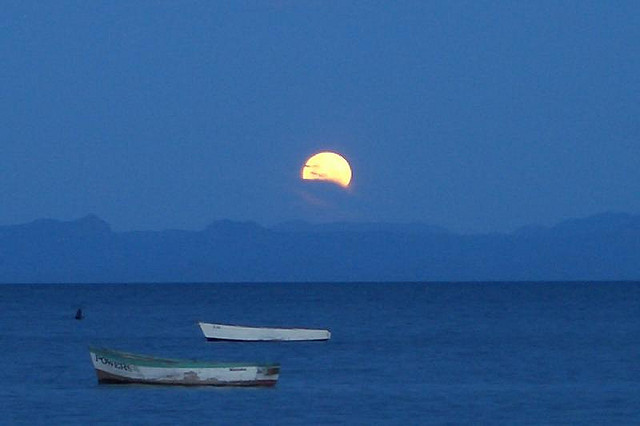
Lake Malawi - Image by biddmia
5 magnificent facts about Lake Malawi

1- Lake Malawi is also known as Lake Nyasa or Lago Niassa which is the third largest and the second deepest lake of Africa. Another magnificent fact about Lake Malawi is that it is also the ninth largest lake of the lovely planet. According to the scientists, Lake Malawi was formed 1-2 million years ago and it is located between Malawi, Mozambique and Tanzania. Lake Malawi bears many qualities of a sea except the salty water and for much of the year it is placid and welcoming, while at other times strong winds and storms can produce surfable waves.

2- Lake Malawi is between 560 kilometres (350 mi) and 580 kilometres (360 mi) long, and about 75 kilometres (47 mi) wide at its widest point. The total surface area of lake Malawi is about 29,600 square kilometres (11,400 sq mi). The lake has shorelines on western Mozambique, eastern Malawi, and southern Tanzania. The largest river flowing into it is the Ruhuhu River, and there is an outlet at its southern end, the Shire River, a tributary that flows into the very large Zambezi River in Mozambique.

3- Lake Malawi is noted for being the site of evolutionary radiations among several groups of animals, most notably Cichild fish. Several hundred endemic species are found in the lake, many of which have become popular among aquariums owners due to their bright colors. Among these popular Cichlids are the Mbuna and the Haps. World Wildlife Fund researchers have identified over 500 species of cichlids to date that are not found anywhere else in the world. That is more than all of the freshwater species found in all the waters of both Europe and North America.

4- Lake Malawi is one of the main attractions in Malawi for local and international tourists because of its beaches and islands. Many Malawians go to the lake for Christmas vacations and other holidays for recreational purposes. International tourists visiting Malawi also go to the lake for recreation.Some of Malawi’s best resorts are on Lake Malawi.Resorts offer a wide range of activities like snorkeling, diving, boat riding, sailing, water skiing, camping, trips to the islands located along the lake, beach football and other water activities.

5- Lake Malawi has always attracted more than its share of reminiscent travelers. From the time of the Victorian missionaries and traders, whose little steamers used to plough its waters in the cause of Christianity and hard cash, the accounts of visitors to the Lake are distinguished by an attempt to pin down an essential mysteriousness, part of its unchanging quality, which has always managed to elude final definition.
